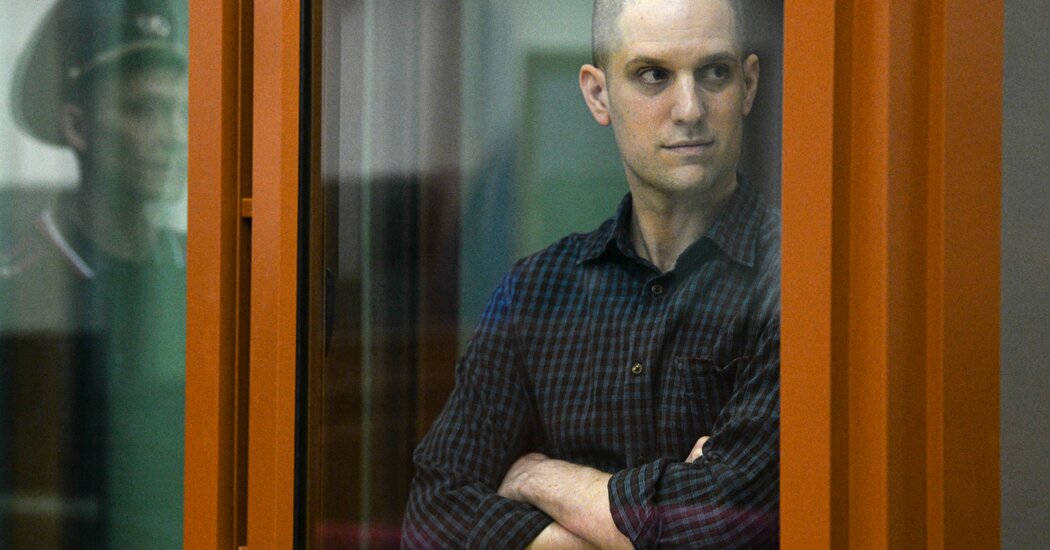Russian Court to Deliver Verdict on Evan Gershkovich

A court in Russia was expected to deliver a verdict on Friday in the espionage case of Evan Gershkovich, a reporter for The Wall Street Journal, after prosecutors reportedly asked the court to sentence him to nearly 20 years in a penal colony.
The proceedings were recently moved up by more than three weeks, and although Mr. Gershkovich is expected to be convicted, a verdict would open the way for aprisoner swap between the United States and Russia.
On Wednesday, the Russian foreign minister, Sergei V. Lavrov, said that the two countries were holding talks on a possible swap involving Mr. Gershkovich, who was arrested almost 16 months ago.
The court in Yekaterinburg, where Mr. Gershkovich was initially detained, said in a statement that it had concluded hearing evidence, including testimony from witnesses and a statement from Mr. Gershkovich, who was also interrogated as a witness.
Judge Andrei N. Mineev, who is hearing the case, was formulating his verdict, the court said, and an announcement was expected in the afternoon. The Russian state news agency Tass reported that prosecutors had asked that Mr. Gershkovich be sentenced to 18 years in a high-security prison.
Mr. Gershkovich, his employer, and the American government have repeatedly denied the espionage charges against him, saying that he was accredited to work as a foreign correspondent in Russia and was engaged in journalism, not spying. They have called the charges politically motivated.
Russian prosecutors said in their indictment that Mr. Gershkovich used “painstaking conspiratorial methods” to obtain “secret information” about a major Russian weapons factory near Yekaterinburg that produces weapons and other weapons.
The release of the indictment last month was the first time the Russian state had revealed details about the case against Mr. Gershkovich, but they did not provide any evidence to back up the charge.
The proceedings on Friday, when both sides delivered their final arguments, were held behind closed doors. Journalists who came to the regional court building in Yekaterinburg, where Mr. Gershkovich was detained while on a reporting assignment, were not allowed to see him in the courtroom even before the hearing started.
The case against Mr. Gershkovich picked up speed Tuesday, when it was announced that the second hearing in his case had been moved ahead by more than three weeks. The first hearing in Mr. Gershkovich’s case took place on June 26.
On Thursday, during the second hearing, the court wrapped up its investigation of the evidence and hearing witness testimony.
Espionage cases in Russia usually take about four months in Russia but can take up to a year, according to lawyers who have worked on such cases.